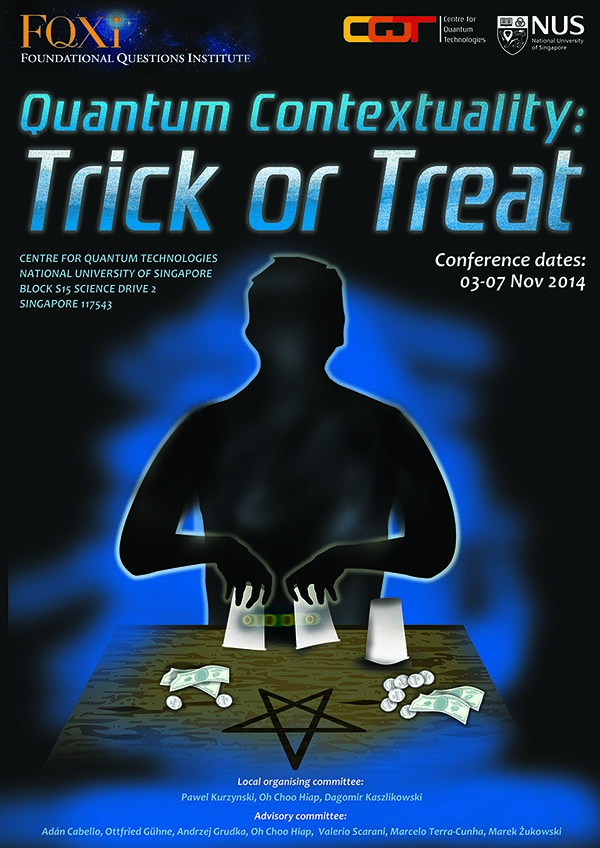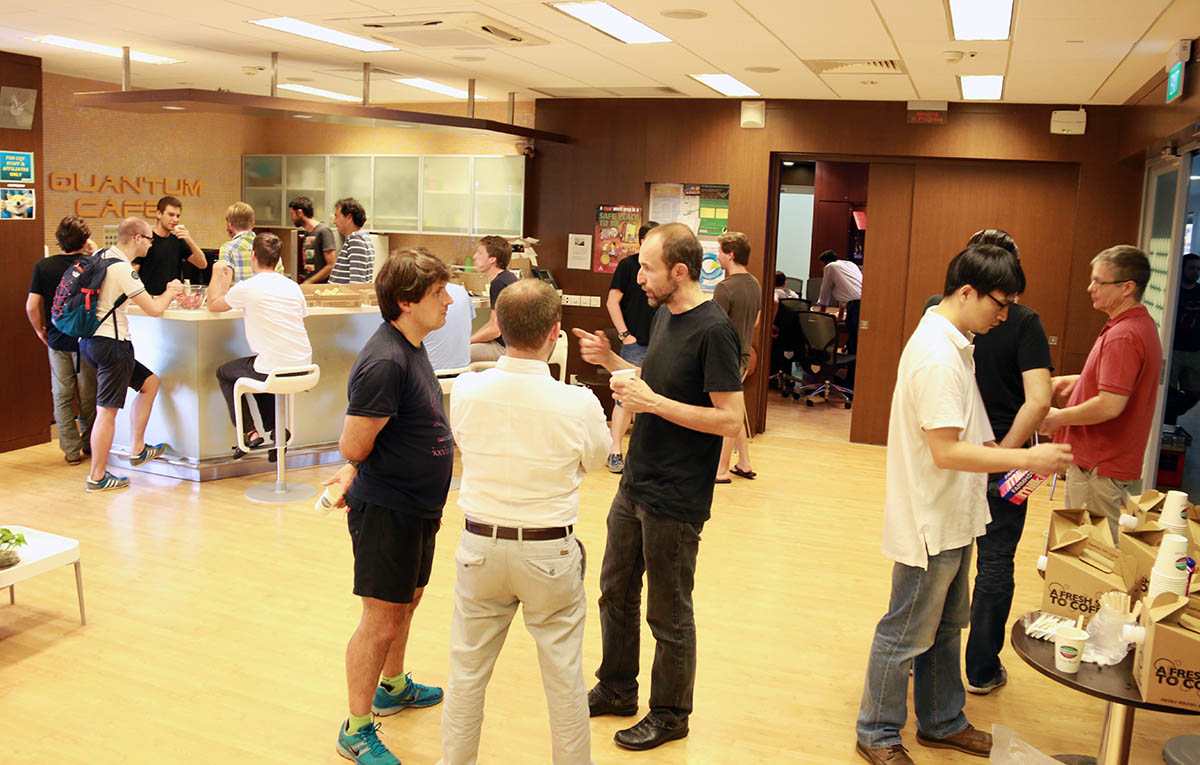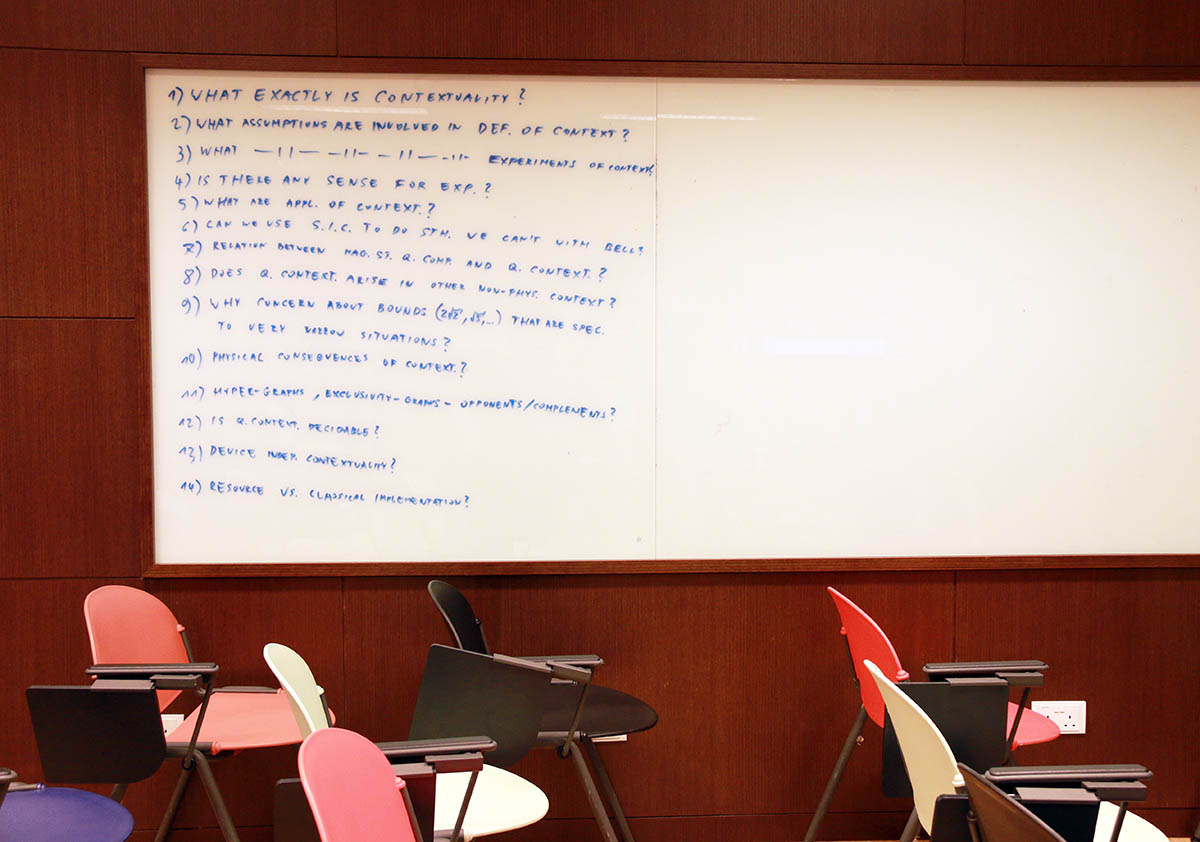Highlights
CQT workshop on quantum contextuality addresses open questions

CQT hosted the international workshop "Quantum Contextuality: Trick or Treat" for some 50 participants during the first week of November. The meeting was organised by CQT's Dagomir Kaszlikowski, Oh Choo Hiap and Pawel Kurzynski and was supported by a grant from the United States' Foundational Questions Institute (FQXi).
Quantum contextuality is the idea that the properties of a quantum system depend on context. This is contrary to our experience of the classical world. Imagine you pick up a book and find that the story is different depending on whether you started reading at page one or looked first at the blurb on the back. This is what happens in quantum systems: the order in which you measure a particles' properties affects the results.
The mathematics of quantum physics tells us that contextuality should exist and experiments show that it does, but there remain many open questions.
The workshop gathered scientists who work on quantum contextuality to stimulate discussion. Learn more from Dagomir in this Q&A:


Participants in the CQT workshop discussed open questions about quantum contextuality.
Why did you decide to organise a workshop on quantum contextuality?
Dagomir: The problem with contextuality is that it seems to be now only a philosophy of science without any serious applications. The idea of the workshop was to try to gather the best people in this topic and debate what we can do with it. Is it a resource? Can it be used to perform some computational tasks? What is the future of this topic? And so on.
How did it go?
We feel that we partially achieved our goal. It seems that the majority of people are comfortable with a slow, systematic exploration of this topic without a need for a revolution. Pawel and I strongly disagree. Now we know there are some young researchers in the field who share our opinion.
What were some highlights?
We had a great talk by Marcin Pawlowski from the University of Gdansk in Poland. He talked about signalling theories – physical theories that allow information to be transmitted faster than the speed of light – claiming that although they violate special relativity, they are still interesting to explore. He motivated the talk by citing a slew of sci-fi books where such ideas were entertained. It was a brilliant and unusual talk! There was also an extraordinary talk by Fabio Sciarrino from the Sapienza University of Rome, Italy, about boson sampling and its experimental implementation. We learnt a lot from it.
Do you think new collaborations or science will come out of the workshop?
Definitely yes. We'd rather keep the follow-ups secret for the moment to surprise the community with new and cool results.






